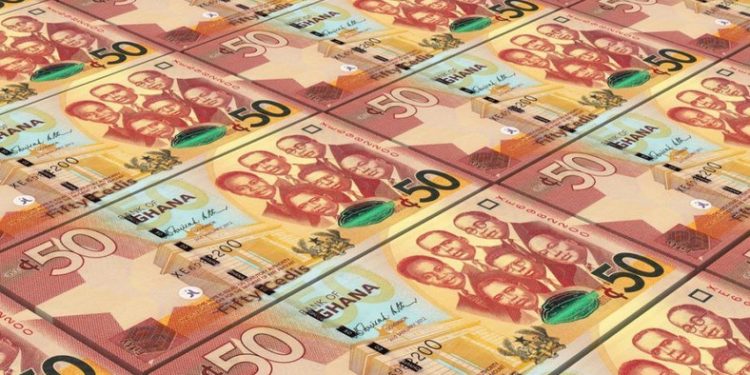The rate of depreciation of the Ghana cedi almost doubled within just a week or only the first week of March to 14.21%, since the beginning of the year.
This was against 7.6% recorded at the end of February 2021.
The decline in value of the cedi still ranked it as the worst performing among Africa’s top performing currencies.
Several factors including perceived risks in the Ghanaian economy, as a result of high interest payments on borrowed funds and financial challenges within the economy, have been attributed to the rapid depreciation of the cedi.
This has fueled the selling of the country’s international bonds by some international investors and consequently reduction in foreign inflows.
Chief Finance Officer at the Valley View University, Dr. Williams Peprah, told Joy Business the Bank of Ghana should step up its regulatory activities to prevent people from hoarding the US dollar.
“Though Ghana operates an open market economy, but if we are able to use regulation to strengthen the regulatory activities to prevent people from hoarding dollars, it will help the country to also stop devaluation of the cedi”.
Furthermore, he said “one of the areas we can use as a country to make sure that our currency does not devalue is boost in exports. Normally in periods that a country experience currency devaluation, the positive side is that it makes our exports very cheaper. If Ghana as a country can take advantage of our currency devaluation to make sure we are able to do more exports, then it will turn the fortunes, so Ghana’s currency will be strengthen.”
Dr. Peprah also urged the Majority and Minority in Parliament to resolve their differences, particularly over the Electronic Transaction Levy [E-Levy] to send positive signals to investors that the country’s democracy is stronger.
“Another important things is that the current political instability, especially what is happening in parliament over this disagreement [E-Levy] also has indirect effect on the way our currency is behaving, because investors are not certain about the kind of decision and which will trickle down to the monetary policy.”
“So Political instability, especially as we are seeing in our Parliament house, if we are able to have amicable solution it will have an indirect effect to improve our currency devaluation. Not a matter of just E-Levy, but a total understanding of what is really happen in our law marking area will also help”, he added.
AFRICA’S TOP CURRENCIES
| CURRENCY | YEAR-TO-DATE PERFORMANCE | RANKING |
| Namibian dollar | 4.51% | 1st |
| South African rand | 3.97% | 2nd |
| Botswana pula | 0.94% | 3rd |
| Egypt pound | 0.00% | 4th |
| Malawi kwacha | 0.00% | 4th |
| Tanzania shilling | -0.02% | 6th |
| Malawi kwacha | -0.68% | 7th |
| Nigeria naira | -0.70% | 8th |
| Tunisian dinar | -0.91% | 9th |
| Uganda shilling | -1.16% | 10th |
| Mauritius rupee | -1.75% | 11th |
| Côte d’Ivoire CFA | -2.64 | 12th |
| Morocco dirham | -4.16% | 13th |
| Zambia kwacha | -7.45% | 14th |
| Ghana cedi | -14.21 | 15th |







